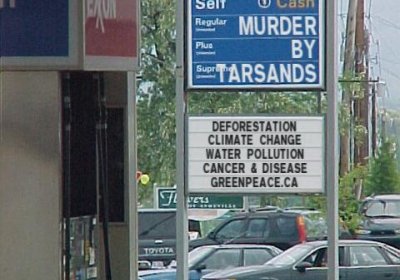A recently published report has revealed that the 2003 US invasion and occupation of Iraq was responsible for the deaths of about 1 million Iraqis, or 5% of the population. The report also tallies hundreds of thousands of casualties in Afghanistan and Pakistan as a result of the US-led war.
Dahr Jamail
On April 20, 2010, BP’s Deepwater Horizon oil rig exploded, triggering a months-long disaster that would end only after at least 4.9 million barrels of oil, and at least 1.9 million gallons of toxic chemical dispersants, had been injected into the Gulf of Mexico.
One year on, the environmental destruction, while huge, is still only in the beginning stages. Experts warn that it will take decades to see the full consequences.
Two-year-old Gavin Tillman of Pass Christian, Mississippi, has been diagnosed with severe infections. His temperature has reached more than 39°C since September 15, and his health continues to worsen.
His parents, some doctors and environmental consultants believe the symptoms are linked to exposure to chemicals spilt by BP during its Gulf of Mexico oil disaster.
Gavin’s father, mother and cousin also have serious health problems. Many others living along the coast of the Gulf of Mexico have experienced their symptoms.
In August, Truthout conducted soil and water sampling in Pass Christian Harbor, Mississippi, on Grand Isle, Louisiana, and around barrier islands off Louisiana’s coast to test for the presence of oil from BP’s Macondo Well.
Laboratory test results from samples taken reveal very high concentrations of oil in the soil and water. These results contradict consistent claims by the federal government and BP since August that much of the Gulf of Mexico is now free of oil and safe for fishing and recreational use.
The tar sands mining project in Alberta, Canada, is possibly the largest industrial project in human history and critics claim it could also be the most destructive.
The mining procedure for extracting oil from a region referred to as the "tar sands," located north of Edmonton, releases at least three times the CO2 emissions of regular oil production procedures and will likely become North America's single largest industrial contributor to climate change.




